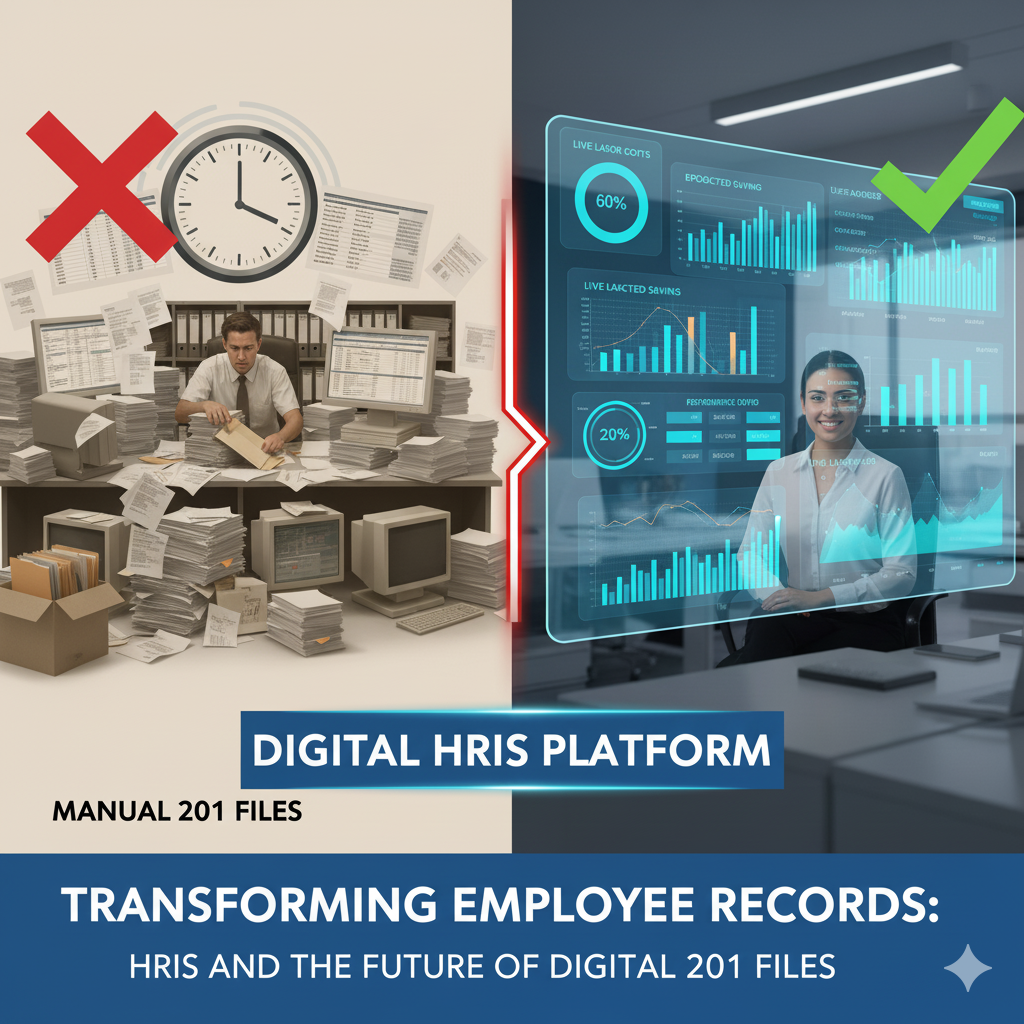For decades, employee 201 files — those folders filled with job applications, contracts, attendance records, and evaluations — have been the backbone of human resources management. Traditionally stored in filing cabinets or on local servers, these physical records often led to inefficiency, lost documents, and compliance risks.
In today’s digital age, businesses can no longer afford to rely on paper-based systems. Managing thousands of employee files manually isn’t just time-consuming — it’s costly, insecure, and prone to human error. This is where Human Resource Information Systems (HRIS) come into play.
What Is HRIS and How Does It Digitize Employee 201 Files?
A Human Resource Information System (HRIS) is a comprehensive software solution that automates and centralizes HR processes, including the management of employee records.
By digitizing employee 201 files, HRIS platforms:
🗂️ Store all employee documents in a secure, centralized database
🔍 Allow instant access to records anytime, anywhere
🛡️ Ensure data accuracy and compliance with labor regulations
🔄 Integrate seamlessly with payroll, attendance, and performance systems
⚡ Reduce administrative workload and paper waste
Instead of manually filing and retrieving records, HR professionals can now upload, categorize, and search employee data in seconds — all from a single digital dashboard.
The Advantages of Going Digital with HRIS
Adopting digital employee 201 files through HRIS offers multiple benefits for HR teams and the organization as a whole:
- Enhanced Data Security
HRIS systems use encryption, access control, and audit trails to protect sensitive employee data from unauthorized access and data breaches.
- Improved Accessibility and Efficiency
Authorized users can instantly retrieve employee documents, even remotely — perfect for hybrid or global teams.
- Regulatory Compliance and Accuracy
Digital records make it easier to comply with labor laws, data privacy regulations, and audit requirements. No more misplaced or outdated files.
- Eco-Friendly and Cost-Effective
Going paperless means lower storage costs, reduced printing, and a smaller environmental footprint.
- Smarter Decision-Making
With all HR data integrated in one system, HR leaders can generate reports and insights that support strategic workforce planning.
The Future of Digital 201 Files
As HR technology evolves, HRIS platforms are integrating AI and cloud computing to further streamline employee record management. Imagine:
- Automated document verification
- AI-powered data audits
- Predictive analytics for employee trends
- Secure cloud-based access from any device
These advancements will redefine how organizations handle employee information — making HR more strategic, agile, and compliant than ever before.
Why HRIS Is the Future of HR Record Management
The shift from manual filing cabinets to digital HR ecosystems is more than just a trend — it’s a transformation. Companies that adopt HRIS solutions for managing digital employee 201 files enjoy:
- Greater transparency and accuracy
- Faster onboarding and record updates
- Stronger data protection and compliance
- More time for strategic HR initiatives
With HRIS automation, your HR department can focus less on paperwork and more on people.
Conclusion
HRIS technology is transforming employee records management, turning traditional 201 files into powerful digital assets. By embracing automation, data security, and real-time access, organizations can future-proof their HR operations and move confidently toward a paperless, data-driven future.
If your HR team is still buried in paper, now is the perfect time to digitize your employee 201 files with HRIS — and unlock the full potential of your workforce data.

